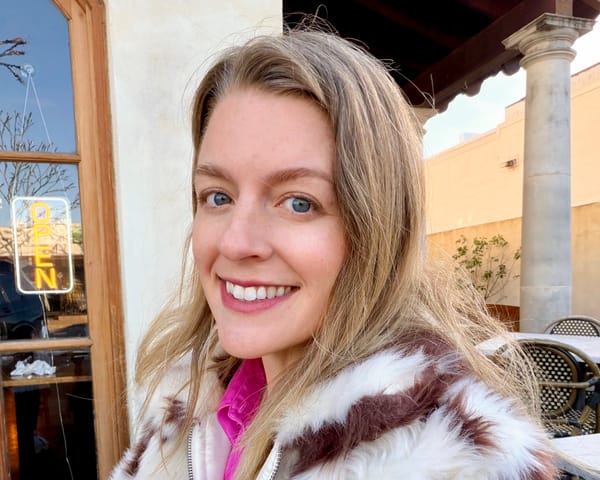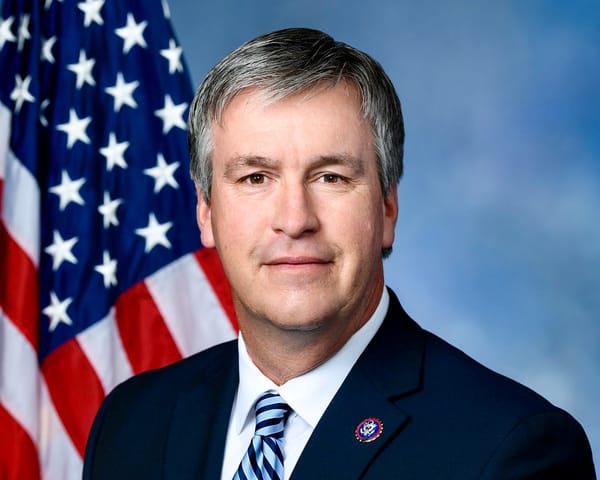Correlation Doesn’t Equal Causation — Until It Cuts Into Profits
“The same script that runs Washington’s budget battles runs its health policies. It’s never about protecting people; it’s about protecting profits”—Alicia Boothe Haggermaker

Guest Opinion by Alicia Boothe Haggermaker
Everyone’s talking about the “government shutdown” again, as if this round is just another episode of political theater. But if you look closer, it isn’t really about partisan chaos. It’s about money and control hiding behind new labels and old excuses.
The same script that runs Washington’s budget battles runs its health policies. It’s never about protecting people; it’s about protecting profits. The shutdown fight, for instance, is really about expiring ACA premium tax credits — federal money that keeps insurance companies cushioned. Without those subsidies, premiums could double and healthy people would drop coverage. So instead of fixing the system, Congress is holding the country hostage to keep insurers happy (Commonwealth Fund, Oct 2025).
That’s not governance. That’s hostage-taking with paperwork.
And nowhere is that pattern clearer than in the way this country still treats hemp and cannabis.
Science When Convenient
You’ve probably heard the phrase “correlation doesn’t equal causation.”
It’s true — and it’s also the most abused sentence in modern debate.
We say cigarettes cause cancer even though not every smoker gets it.
We say stress contributes to heart disease even though calm people have heart attacks, too.
Because cause isn’t binary. It’s cumulative.
But the minute we start talking about environmental toxins, pesticides, or vaccine injury, the same people who accept complex causation everywhere else suddenly become philosophers of semantics. “Correlation doesn’t equal causation,” they repeat — translation: stop asking uncomfortable questions.
Apparently, causation is only complicated when it’s bad for business.
The Inflammation Connection
Biology is clearer than politics. Inflammation sits at the center of nearly every chronic condition we face — heart disease, diabetes, autoimmune disorders, depression, even cancer. It’s the quiet match that lights the modern epidemic.
And guess what regulates inflammation?
The body’s endocannabinoid system — our internal balancing mechanism. When stress, toxins, or diet throw that system off, cannabinoids bring it back into rhythm.
That’s not conspiracy theory; it’s biochemistry.
Peer-reviewed studies from the National Cancer Institute and PubMed databases show cannabinoids triggering apoptosis — programmed cell death — in tumor lines and reducing inflammation in nerve tissue (Guzmán et al., Nature Medicine, 2003; Salazar et al., J Clin Invest, 2009).
You don’t have to claim cannabis cures everything to acknowledge it clearly does something worth understanding. Yet our institutions pretend the evidence doesn’t exist while handing billion-dollar patents to pharmaceutical companies synthesizing the same compounds.
The War on Hemp
This month I joined a call with Senator Rand Paul, who warned that Congress is on the verge of erasing the American hemp industry altogether. The proposed language would drop the legal THC threshold so low it can’t be met naturally, rendering nearly every hemp-derived product illegal overnight (Marijuana Moment, Sept 2025).
Paul called it plainly: if that amendment passes, existing inventory will have to be destroyed. Imagine it — farmers burning their crops, small businesses shuttering, veterans losing access to the only thing that lets them sleep without opioids — all under the banner of “safety.”
Meanwhile, the FDA continues to bless Epidiolex, a cannabinoid-based drug sold at thousands of dollars per month (FDA Approval Notice, 2018).
When natural medicine competes with patented medicine, only one gets labeled a “public health threat.”
That’s not regulation. That’s monopoly maintenance.
Prohibition 2.0: How to Build a Black Market
If this sounds familiar, it should. We’ve played this movie before.
When alcohol was banned a century ago, consumption didn’t vanish; it just moved underground — feeding gangs, corruption, and violence while the government lost both revenue and credibility.
The so-called “War on Drugs” has done the same thing for decades. Research from Yale University’s Global Justice Program shows that criminalization of drugs consistently strengthens cartels and black markets rather than dismantling them (Yale GJP, Rethinking the War on Drugs, 2024).
And the newest evidence hits even closer to home.
Tucker Carlson Network’s documentary High Crimes: The Chinese Mafia’s Takeover of Rural America reports that organized Chinese networks are operating black-market marijuana farms across the United States — many using illegal, neurotoxic pesticides that contaminate soil and product alike (TCN, June 30 2025; The Maine Wire, June 30 2025).
So when lawmakers speak of banning legal hemp “for safety,” remember: you’re not eliminating risk — you’re outsourcing it to unregulated, unaccountable players. You’re not destroying demand; you’re strengthening cartels.
That’s not public health — it’s organized hypocrisy.
Déjà Vu: The Pandemic Playbook
If this sounds harsh, remember: it’s the exact same pattern we watched during the pandemic.
In the name of “public safety,” small businesses were ordered to close while big-box retailers and online giants stayed wide open. The corner café went under; Amazon and Walmart posted record earnings (CNBC, 2021).
Now the government is aiming that same selective enforcement at hemp farmers and local health shops. Once again, independent producers are labeled a danger while corporate suppliers get the green light — and the subsidies.
The rhetoric changed, but the mechanism didn’t: manufacture a crisis, declare yourself the gatekeeper, and cash the checks that follow.
Manufactured Scarcity, Round Two
In my last piece, The Mechanics of Manufactured Scarcity, I wrote that scarcity today isn’t accidental — it’s engineered. The same playbook that keeps food, fuel, and healthcare artificially scarce is now being applied to hemp.
1. Label abundance a “risk.”
2. Regulate it into extinction.
3. Sell the synthetic version back to the public at ten times the cost.
That’s not capitalism; that’s capture.
Freedom Is a Biological Issue
We subsidize alcohol, sugar, and opioids, yet threaten to criminalize a plant that reduces inflammation and helps people heal.
We talk about safety while funding sickness.
We preach freedom while legislating dependence.
Prohibition didn’t protect the public last time, and it won’t this time either. What it will do is empower cartels, bankrupt small farmers, and make healing illegal for those who can’t afford it.
Freedom isn’t a partisan talking point — it’s a physiological necessity.
If the endocannabinoid system exists to keep our bodies in balance, maybe our laws should try doing the same.
Alicia Boothe Haggermaker is a lifelong resident of Huntsville, Alabama, and a dedicated advocate for health freedom. For more than a decade, she has worked to educate the public and policymakers on issues of medical choice and public transparency. In January 2020, she organized a delegation of physicians and health freedom advocates to Montgomery, contributing to the initial draft of legislation that became SB267.
Opinions do not reflect the views and opinions of ALPolitics.com. ALPolitics.com makes no claims nor assumes any responsibility for the information and opinions expressed above.
Sources:
1. Tucker Carlson Network; High Crimes: The Chinese Mafia’s Takeover of Rural America. “The Chinese mafia is building a black-market marijuana empire … lacing marijuana with poisonous pesticides.” Released June 30, 2025.
Link: https://tuckercarlson.com/high-crimes-movie
2. The Maine Wire. “Watch Now — High Crimes: The Chinese Mafia’s Takeover of Rural America”. June 30, 2025.
Quote: “They’re lacing marijuana with illegal, neurotoxic pesticides … unregulated, chemical-laced weed.”
3. Carl Tucker interview with Steve Robinson. Transcript and discussion of Chinese mafia infiltration, pesticide-laced black-market marijuana.
Link: https://singjupost.com/steve-robinsons-interview-on-the-tucker-carlson-show-transcript/
4. Additional context on transnational crime, cartels, laundering, etc., involving China-Mexico networks.
Link: https://www.brookings.edu/articles/addressing-mexicos-role-in-the-us-fentanyl-epidemic/




